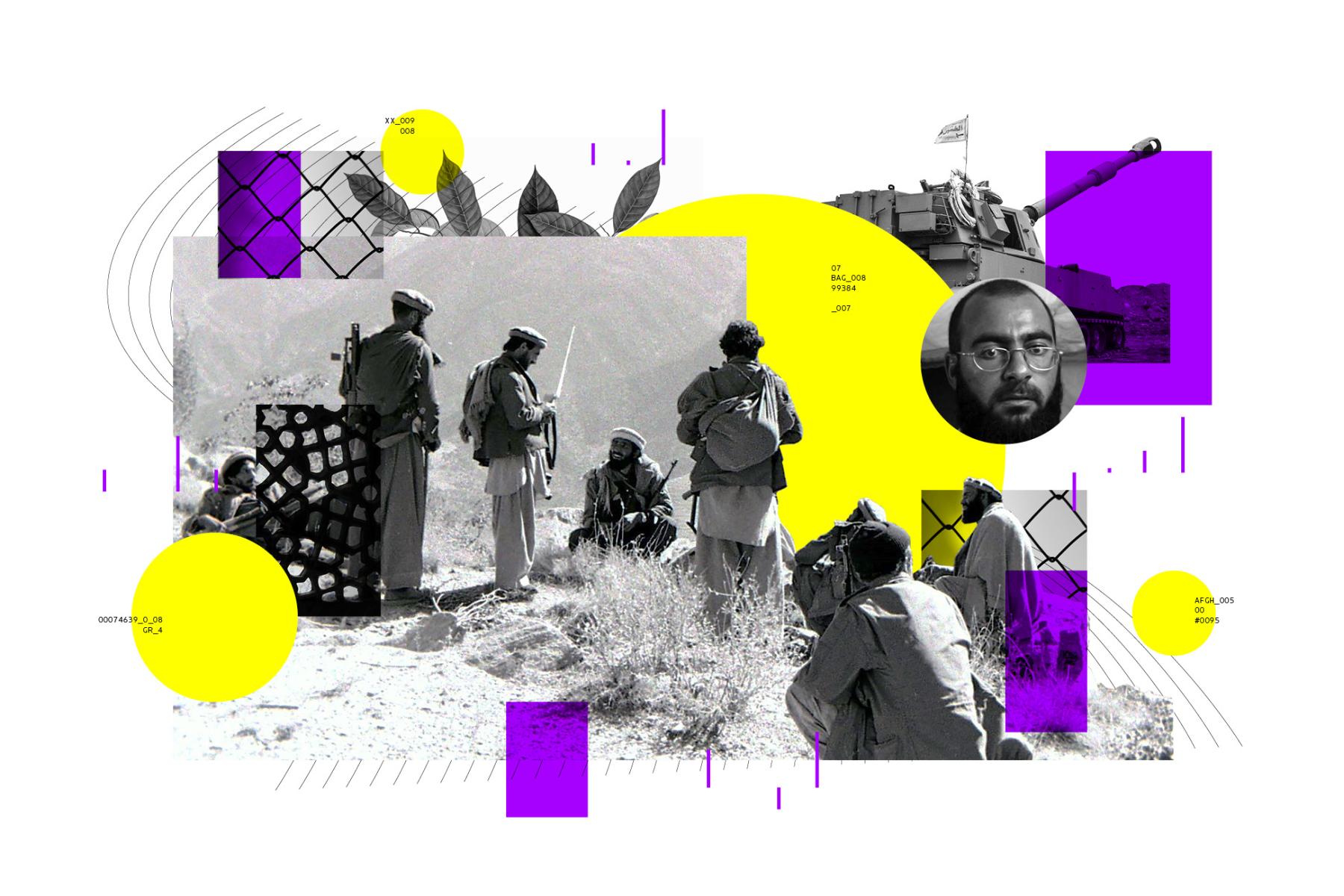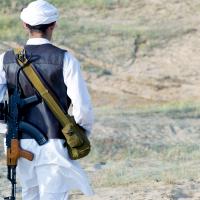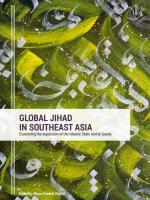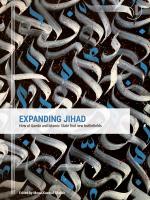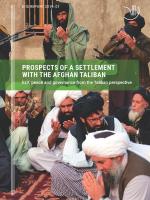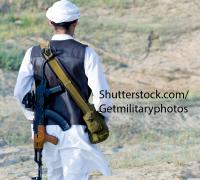Taliban 2.0. - What they say
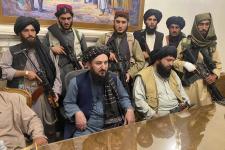
Amina Khan and Mona Kanwal Sheikh bring excerpts from recent interviews with the Taliban. Whether the interviewees are strategic or honest in their communication or trying to influence the public perceptions of them is the not the question under scrutiny here, but rather it is an attempt to get closer to the narratives of the Afghan Taliban. This can bring us to a better understanding of their worldview, and how they would like the world to understand the movement anno 2021.
This text is based on recent interviews with two high-ranking and serving Taliban officials which took place in August 2021, shortly before the Taliban took over Kabul. They are summarized in their raw form but accompanied by brief – emboldened - comments by the authors. The interviews were conducted under conditions of confidentiality, and the interviewees are treated anonymously, since they can potentially display sensitive internal debates within the movement. However, both officials are aware that extracts from our conversations with them are being published. Most of the messages and viewpoints referred to below resonate with official and publicly available Taliban statements.
The Taliban currently face several different challenges. The first is to establish themselves as a party rather than a guerrilla movement. Whether the Taliban can remain a coherent movement when the USA, their common enemy), has withdrawn its troops, political posts need to be allocated and the boundaries of sharia law need to be agreed is still uncertain. Second, the Taliban face the challenge of ensuring that their power-sharing agreement will be seen as legitimate and that they can create a government that can deliver: this is a matter not of only stability, but also of providing services and economic opportunities and respecting human rights. A third challenge relates to their ability to create stability after the US withdrawal in face of the presence in the country of the Islamic State Khorasan movement (ISKP) and armed resistance in the Panjshir Valley led by Ahmad Massoud and supported by Amrullah Saleh. Despite this resistance, it currently appears that a variety of Afghan stakeholders are willing to engage with and even work with the Taliban. Other forms of civil resistance might occur from human rights organisations or civil-society actors with an equality or democracy agenda.
The international community too faces questions about how to deal with an actor like the Taliban movement, which is remembered for its repressive reign from 1996 to 2001. The dilemma is that the needs for stability and to respect human rights are not always in sync, and there is a potential trade-off. At the same time, transnational jihadist movements are still active, calling for a major revision of counterterrorism policies and the development of new approaches. In any case, security considerations and access to intelligence in Afghanistan will require collaboration with the ruling parties.
Disengaging does not seem to be a viable option, as it may have wider security implications for the west and will run counter to the objectives of creating stability, thus reducing the threat from transnational jihadists, ensuring human rights and facilitating the Taliban’s own transformation from rebel movement to political party. New policies towards Afghanistan require a better understanding of the Taliban movement, as well as support for a national process of reconciliation.
Taliban and moderation
Since the Taliban took over, many questions related to their moderate PR messages have been posed. Do they mean what they say when they talk about female education, embracing different groups in society, protecting civilians and sharing power? Afghanistan has evolved during the past twenty years, and so have the Taliban. The movement’s overall mission remains creating a sovereign and independent Afghanistan run by what they perceive to be an Islamic system. The Taliban of today are still an ultraconservative Islamist movement, but one which has evolved politically and organizationally. There has been an observable shift in their approach and tactics. This is evident from their well-planned strategy to ‘take back’ Afghanistan, which was focused on non-offensive tactics and seem to have been well prepared over the course of the past few years. Taliban officials seems to be well aware that, if they resort to their old ways, they will not get the support, investments and recognition they need from the international community to legitimize their rule, even if that rule is administered within the context of a relatively inclusive set-up.
According to one of the Taliban officials interviewed, the movement is rooted in traditional moral codes and continues to be guided by the ideology of its spiritual and ideological head, Mullah Muhammad Omar Akhund. While the leadership of the movement has changed over time for various reasons, the philosophy and agenda has remained the same: the liberation of Afghanistan from foreign control and an independent Afghanistan run under an Islamic system, modified to bring it into line with changing times, one that is acceptable to all Afghans. The Taliban official stated that in the past unintentional mistakes were made, as the movement lacked experience and was misguided when it came to interpreting the laws of the land or governing in accordance with sharia law. While according to him the movement has always been respected in society, it has come to the realization that at times certain events or policies have isolated it from society at large. Therefore, modifications and progress are needed to keep up with changing times.
During the last couple of years, the movement has been engaging extensively with and consulting renowned Islamic scholars who believe in an Islamic system that is inclusive and accommodating, and where individuals are given their due rights. One Taliban official says that, unlike in the past, they do not believe in the use of force. If someone wants to keep a beard they will welcome it, and if others do not they will not oppose it, let alone make it compulsory. Similarly, according to the official, the movement will not stand in the way of those who are fond of music or poetry – their aim is a society that does not commit sins.
The movement envisages an inclusive state where all Afghans feel safe. According to the Taliban official, they have given firm orders to their fighters to follow strict protocols to avoid conflicts, not to cause any material damage, and to protect and safeguard the rights of the masses, whether men, women or children, or those who lay down their arms, regardless of whether they want to join the Taliban or not.
While the movement has incorporated and implemented new protocols for its members to follow, one Taliban official states that the movement needed time to re-educate its members and ensure that the changes are first reflected by them in their treatment of society, and then replicated by society. He elaborated that the foremost priority of the movement is to introduce and impose discipline within the rank and file of the group. The aim is not to enforce discipline on others, but rather to set an example and lead.
The Taliban official also said that, while the majority of the top tier leadership is well versed in areas of governance, public life, civil rights and civic duties, its members and fighters on the ground lack education and exposure to such matters, primarily because they have only grown up in a time of war: all they have seen is bloodshed. As they have not learnt about public life, civic duties and rights, the leadership is re-educating its members, teaching them tolerance and discipline.
However, such changes need to be incremental rather than rushed, bearing in mind the realities the fighters on the ground are faced with: such measures need to be introduced and implemented gradually, and the Emirate is confident that, as long as the Taliban leadership remains committed, its members will be able to serve society. They had advised their fighters to avoid violence and bloodshed, and so far the transition has been stable: despite the provocations of other parties, as instructed Taliban fighters have not resorted and will not resort to violence. According to one Taliban official, Afghanistan now is not at war, as no member of the Taliban movement will resort to violence: if any member does, he will made accountable publicly.
Although the movement has been struggling for nearly twenty years, as they see it their real struggle or test has only partially begun with the takeover. According to one of the Taliban officials, the movement will be judged for its policies and actions in fulfilling the expectations of the masses, which is not an easy task. After all, as they are answerable to the people they will be held accountable for their actions. Therefore, any member of the movement who goes against its guidelines will be made an example of publicly: no one is above law and justice within the ranks of the Emirate.
Taliban Unity
In recent years the Taliban have kept a hierarchical command structure under which the foot soldiers have followed the orders and strategies of the leadership. The speedy takeover of province after province testifies to the leadership’s control. They have, however, also issued ‘disciplining’ messages to their ranks in order to maintain their cohesion. Their unity might be challenged by future debates on what comes within the boundaries of sharia law and what is outside them. Moreover, in Afghanistan identification with the state has always been less strong than identification with local authorities and customs, which will mean that there will be observable variations in the way sharia is interpreted. The Taliban have made conscious efforts to present the appearance of a pan-Afghan movement by reaching out to and including ethnic factions in the country other than the Pashtuns. Hazara afghans and other Shia Muslims, as well Tajiks and Uzbeks, have also joined the ranks of the Taliban.
According to one of the Taliban officials, there may have been reports of divisions within the rank and file of the movement, particularly between the Taliban’s Doha office and those leading the insurgency, such as Mullah Yakoob and Mullah Haqqani, as well as between the hardliners headed by Akhunzada pitted against the Baradar group. However, he stated that these claims were unfounded, as the movement has demonstrated its unity, resilience and commitment to its cause, namely the liberation of Afghanistan from foreign control. Several attempts had been made both before and after the Doha agreement was signed to create divisions within the group, but the deal with the US was only signed after all members of the movement were on board. Contrary to western perceptions, according to one Taliban official, extensive consultations take place within the movement on all matters, particularly policies pertaining to the group.
We also learn how Taliban members, unlike those in other groups or movements, are all guided by their collective love and struggle for their homeland, which is why the movement’s agenda has remained consistent and limited to the borders of Afghanistan: in fact, it has been the constant binding force behind the movement’s unity. However, there have been challenges: the movement faced its first internal division, leading to the desertion of a few members after the death of Mullah Umar and the subsequent appointment of Mullah Mansoor. One Taliban official is nevertheless of the opinion that after Amir Haibatullah Akhunzada took over he was able to reunite the movement through his wisdom and sagacity, making it more united and focused than ever. According to him, the movement has been able to make such a strong comeback because it has remained consistent and true to its cause.
One of the Taliban officials nonetheless admitted that there are concerns about the emergence of differences and tensions between different wings of the movement. These relate particularly to procedures or approaches once the movement wins power, even if it is within the confines of an inclusive set-up, particularly resistance from some over the correct interpretation of Sharia. While the official does not see major opposition coming from within the movement, as everyone has been taken on board regarding the movement’s policies, he recognizes that there are spoilers who would like to create differences.
According to one of the Taliban officials, the movement understands the people’s apprehensions. And while a section of society may be concerned, he is of the opinion that a lot of this concern is exaggerated and based on propaganda. He points out that the Taliban were committed to the liberation of Afghanistan, and they have proved it: unlike those who looted the country and ran away, the movement has stayed true to its cause. To him, this is the reason why the group enjoys the support of the masses: when other foreign-backed individuals were given a chance, they failed. Hence, according to him, it is now time for the masses to give the Emirate a chance – and when they do, the movement’s actual test will begin, where they will be judged and made accountable in terms of governance and accountability.
Today the Taliban view themselves as an inclusive force. According to one of the officials, they have different ethnic factions within their ranks, even Shia members. To him, there is no doubt that, while the Taliban may not subscribe to Shia thinking, the movement will still respect them and their beliefs. While in the past processions at the rite of Muharram would be confined indoors, since the Taliban’s takeover, not only did they allow outdoor, public processions, they had even provided them with security. Moreover, the Taliban official pointed out that, in order to create greater harmony and dispel concerns about their views, Taliban members headed by Maulvi Kabir attended and gave a sermon in the Dasht-e-Barchi Hazara neighbourhood in Kabul to mark another ritual, Ashura.
Despite contrary thinking, the Taliban view themselves as a very diverse movement. In the past, as one of the officials observed, the group’s diversity was limited due to its lack of experience and manipulation at the hands of the west: external hands played a major role in creating differences and divergences within the movement.
In his view, however, all Afghans are united in their love of the country, welcoming any Afghan who shares in it. The US occupation has played a major role in uniting the Afghans, ethnic groups other than the Pashtuns also joining the movement’s ranks because they too have grown tired of foreign occupation. According to him, the US did not create any form of stability but rather caused irreversible damage to the state and society. He adds that the Taliban movement has never been limited to a particular group or faction, being for all Afghans, irrespective of their ethnic affiliations. The Taliban have several members from other ethnic backgrounds, and that is why the group never felt the need to showcase its diversity. Abdul Salam Hanafi, an ethnic Uzbek, is a very honoured and respected member of the Taliban top leadership in Doha. Qari Fasihuddin, a Tajik, is another important member, whom the movement calls ‘the conqueror of the north’, as he has played an instrumental role in extending the group’s presence in the north, as well as in the recent takeover. Currently, he is spearheading the group’s campaign in the Panjshir Valley. The Taliban official said that in due course the movement will introduce important Taliban members from other ethnicities who will appointed to key public posts.
Nation Building and Governance
The Taliban have stated that they aspire for an inclusive political arrangement that is responsible, accountable and serves the Afghan people. The movement has publicly stated that it has been engaging extensively with all the different Afghan stakeholders, including Abdullah Abdullah, Hamid Karzai and Gulbuddin Hikmatyar, to name just a few, who will join the council the Taliban leadership intends to establish. However, they also need to deliver if they want legitimacy and need to honour their commitments to be able to sustain their presence. More importantly, they need an economic policy to facilitate growth, jobs, investments and development. They also need to deliver stability and peace, and hence will have to overcome the challenges posed by transnational groups like the Islamic State Khorasan, as well as deal with old ties to Al-Qaeda and other foreign fighters. Aside from public services and stability, the Taliban will actively need to develop a new position on the human rights agenda, particularly in light of Afghanistan’s young population, two thirds of whom are under the age of 25.
According to one of the Taliban officials, the Taliban recognize the need for national unity, which is why they have agreed to work with other Afghan figures and factions towards the formation of an inclusive government. They realize that Afghanistan is a shared responsibility and goal, and they stress the need for national unity. In their view, all Afghans must come together: no party or group can rule Afghanistan independently, and therefore all the ‘loyal’ Afghans who have stayed in Afghanistan have a right to decide over it. We have been engaging with all Afghan political factions: it is not about being Pashtun or non-Pashtun, but about being an Afghan.
The Taliban officials admit that the Taliban cannot rebuild Afghanistan on their own, suggesting that they need to work as a nation and take collective responsibility. They elaborate that the movement has been engaging with certain Afghan politicians with whom they have differed in the past, but their common and shared sense of love and commitment to Afghanistan has brought them together. Therefore, the group is ready to work with these politicians for a shared common cause, namely Afghanistan. According to one official, the Taliban are engaging extensively with other political factions and plan on forming an inclusive government.
One Taliban official reports that there have been talks on the initial formation of a twelve-member council to rule Afghanistan, which would later be expanded into a larger inclusive government. These twelve members could be individuals from previous Afghan governments able to continue governing the existing ministries until a larger administration acceptable to the international community is formed. Within the leadership of the council, Mullah Abdul Ghani Baradar, Mullah Mohammad Yaqoob and Khalil Rahman Haqqani would have key roles. He added that they will avoid creating positions such as that of president, and that the new structure would be heavily influenced by the Iranian school of governance, except that it would be largely Sunni, not Shia, it its outlook. However, as the official put it, the outcome will be an ‘inclusive framework in which all major factions can be accommodated. According to him, the Taliban would naturally want a bigger share since they liberated the country, but that does not mean they will monopolize governance – they want each ethnic group to continue to lead and govern in its traditional areas of influence while at the same time working together and not against each other.
One Taliban official also pointed out that, in order to win the support of neighbouring countries, Afghanistan needs to be united and consolidated, since other regional states have no interest in supporting one party against the others, a policy that is counterproductive, that did not work in the past and will not work now. Therefore, the Afghans need to stand united to win recognition as a responsible state.
Women. According to one of the Taliban officials, the Taliban's approach towards women is well known. It entails certain protocols within the confines of sharia law pertaining to how women dress, her right to work and travel, and public life in general, with the aim of protecting and honouring women. In the past, women had to restrict or compromise their rights within a society that was disorderly. However, this approach belongs to the past because of the changes within Afghanistan and its society. He explains that in the past, circumstances were such that the Taliban enforced the covering of women from head to toe: also, they were not allowed to leave their homes or travel unaccompanied by a male guardian or mahram. However, the movement acknowledges that society has changed and that women have attained new and respectable heights within it. In his view, back then Afghanistan was not safe for a woman to travel in. Even now, as the country is undergoing a transition period, where there are a number of phenomena that might cause harm, the Taliban are suggesting that women should not go out alone for the time being. They are calling for the masses to be cautious in this respect. The Taliban’s aim is to create a society and atmosphere where the female population (mothers, sisters and daughters) can travel alone in the absence of fear.
One Taliban official states that the Taliban openly support the rights of women in all fields of public life: women have an equal responsibility and role to collectively rebuild the country. He elaborates that, as a majority of hospitals have female employees, the Taliban will not stand in the way when it comes to their serving the masses. With regard to dress, he adds that, while Taliban do not enforce strict clothing for women, the movement believes in modesty and covering the head with a head scarf, as in the majority of the Muslim countries.
Education. According to one Taliban official, the people of Afghanistan have grown up in war, and too many lives have been wasted due to war and corrupt regimes. In order to overcome this misery, Afghanistan must invest in the upcoming generation, making education pivotal. He adds that the Emirate recognizes the need for an educated society, but that education is a task that also belong to being a mother: ‘Give me a good mother, and I will give you a good nation’. He explains that the Taliban do not want to see their people left behind from the rest of the world, and therefore they openly welcome and encourage education for all, regardless of gender. In this respect, the movement has been engaging with women officers from the previous Afghan government to look into ways of revising and introducing a new curriculum, one that is inclusive and, if not better, at least on a par with the rest of the world. However, he explains that the Taliban need the help of the international community and of all educated and professional Afghans who are living abroad. The movement is therefore urging all Afghans to come back and serve their country and help build a new generation of Afghans.
The official even added that a time will come when women will be seen in the ranks of the Taliban. However, he admitted that it would be difficult to do that immediately, as such measures need to be introduced and implemented gradually, keeping in mind the on the ground realities faced by its fighters.
The Taliban official indicates that, compared to other countries, Afghanistan has been bogged down in war and has been left behind in terms of development and infrastructure. In his opinion, Afghanistan therefore needs support and assistance to be able to exercise its true potential and play its true role as a regional hub. Afghanistan's potential and resources remain untapped, and it needs development and support.
The Economy. One of the Taliban officials stated that, during the past twenty years, the Afghan economy has been dependent on foreign aid and has remained weak due to rampant corruption. More than 40% of Afghanistan’s GDP comes from foreign aid, which is unacceptable, as it comes with conditions and undermines Afghanistan’s independence. The Taliban are seeking assistance to rebuild the economy, but not at the cost of the country’s independence. One official added that, although the Taliban have an economic plan and policy, it needs to be implemented steadily. The group’s first priority was for all international troops to leave by 31 August 2021, since when we have been in a transitional phase. Once the Taliban announces and, more particularly, forms an inclusive government, the focus can be placed on the group’s economic policy and the country’s economic system. That said, the official did add that the incoming inclusive government would restore the banking and tax collection system, strengthen the country’s economy through agriculture and trade, and try to free all the reserves and assets that have been frozen or seized abroad: restoring the economy is seen as a collective effort.
Drugs. During the Taliban's previous period of rule, the movement was, according to one Taliban official, able to reduce poppy cultivation and trade by 40% without any external support. He stated that the Taliban has traditionally opposed poppy cultivation and that banning it has always been a priority for the movement, but in current times, curbing the drugs trade is a collective responsibility. He is confident that once a consensus-minded government has been formed, a policy will have to be framed collectively, and with the support of the international community, so that poor farmers are provided with alternative means to farm and earn a living. He adds that in the past twenty years the British initiated certain efforts to help curb the trade. However, in his view these policies were undermined by corrupt governments who were not interested in curbing the trade, as they benefitted from it.
He adds that this is an issue to which the Emirate is committed: given adequate support, the group is confident it can curb the poppy trade altogether. He admits that in a state of war all sides benefit from its illegal production, but now that the state is moving towards normality it is essential to deal with the drugs trade, which is seen a grave threat to Afghanistan, as well as to the entire region, as he believes that the trade funds several criminal and terrorist groups like the ISKP.
Terrorist groups. According to one of the Taliban officials, the Taliban will not entertain terrorist groups and will not provide them with any room to operate within Afghanistan's borders: if any such groups have issues with their respective states, Afghanistan is not the place to fight over them. The Taliban will not entertain elements that pose a threat to their neighbours and by extension to the region. The group has categorically stated that the Taliban do not need any group's support nor their allegiance – they have liberated Afghanistan on their own. The Taliban are an indigenous group whose agenda is limited to the borders of Afghanistan. They remain committed to the initial cause, the liberation of Afghanistan. They do not believe in nor aspire to create a global caliphate, but an independent Afghanistan free from all foreign presence, whether of countries or groups.
One Taliban official emphasizes how they will not entertain any groups on their soil that have hostile designs against the country’s neighbours – they are proponents of a peaceful and stable neighbourhood, which they think can only prosper without such groups. Therefore, they openly tell all groups to abandon their unnecessary struggles against their governments. He adds that, if they feel hurt or persecuted, they can come to the Taliban to help sort out their grievances, as the latter can play the role of facilitators, but beyond that, they do not want to be associated with any other groups, causes or struggles. For this official, such groups should focus on the liberation of causes that are important for the freedom of Muslims such as Palestine or Kashmir, instead of swearing allegiance to the Taliban. In his view, the Taliban have sacrificed far too much for the liberation of Afghanistan, – and they will not allow any other cause or group to undermine or jeopardize what the movement has struggled for.
Foreign Policy
There has been a change in the Taliban’s overall approach to foreign policy compared to what it was two decades ago, when most of its foreign policy initiatives were limited to three countries: Pakistan, Saudi Arabia and the UAE. They have prioritized diplomatic efforts by sending delegations to many countries in the last few years, which not only gave the Taliban a chance to showcase their views but led to the movement mustering support for its cause from certain states. Through its external policies, the movement has been able to present itself as a relatively reliable stakeholder compared to the previous Afghan government. The Taliban have stated that they want regional rather than international recognition and support. They have promised regional stakeholders that they will not be harmed by their presence. The movement’s leaders seem to be aware that they will face hurdles from the international community in terms of economic support, hence they are turning to the immediate neighbourhood to ensure such support is forthcoming.
According to one of the Taliban officials, the movement is keen on working more closely with regional countries compared to the west, because, unlike international actors, regional countries are here to stay: geography cannot be changed, and therefore their priority is to secure a working relationship with their neighbours. The other official added that the Taliban understood the concerns and challenges of the immediate neighbourhood and assured it that they would not resort to any policy that would upset or harm regional countries. He believed that, as along as the Taliban delivered within the framework of an inclusive set-up, regional actors would extend their support.
One Taliban official explains how, in the past, the movement did not trust western countries and therefore thought it was best to operate in isolation, but this just caused it more damage. In his view, this not only resulted in limited engagement between the group and the international community, but the isolation led to many misunderstandings of the Taliban as a movement. He felt the Taliban had not been able to speak for themselves and that their disengagement became their greatest enemy. They learned that it is not possible to operate alone, and certainly not in isolation, and that engaging with countries, even if they are not on the same page, is essential for any country’s growth and development. And therefore, he adds, the Emirate has begun to engage openly with a host of international players because the Taliban needs the support and recognition of the international community to operate. In his opinion, the Taliban can be a reliable partner of any country interested in fair play. The movement welcomes foreign aid as long as it is not attached to political pressures or the imposition of certain values on Afghan society.
According to one Taliban official, the Taliban's priority is to have good relations within the neighbourhood, as it needs support and assistance from the international community, especially from other countries in the region. To him, the reality is that western powers have never been sincerely committed to stability in Afghanistan: ‘they come as they please and leave as they please.’ However, regional countries have no choice, because after Afghanistan, it is they that have suffered the most. Therefore, he believes that Afghanistan's neighbours have the first right and responsibility to play a key role in the future of the country, as peace and stability in Afghanistan are essential not only for the Taliban, but for them too.
To one Taliban official, the Emirate’s priority is regional coordination, support and recognition, and international support and recognition is secondary. In his opinion, Afghanistan needs a united and stable region, and building strong ties with all our immediate neighbours is essential, as they all can play a very important role in our development. While Iran, Pakistan and Russia have played different roles in the past through their interactions and discussions, he can confidently say that they are all on the same page when it comes to Afghanistan's future. To him, these countries face a number of challenges from Afghanistan, ranging from transnational terrorist groups to the illegal movement of arms and drugs. He also points out that Afghanistan’s Central Asian neighbours have played a positive role so far, even during the past twenty years, where they have followed a policy of non-interference.
According to one of the Taliban officials, the movement will expand its relations with the government and people of Turkmenistan and support meaningful projects like TAPI, which it will seek to accelerate and implement with the Turkmen government. In the case of Uzbekistan, they appreciate the key role it has played in reconstruction, and they hope to expand this partnership.
Speaking about Pakistan, one Taliban official stated that, despite some differences and limitations, Pakistan was a second home for all Afghans, including the Taliban. He adds how Pakistan has hosted millions of refugees, for which, on behalf of all Afghans, the Taliban is grateful. He stated that they have had positive relations in the past and would like to have positive relations based on non-interference. Pakistan is important for trade and for the fact that it connects them with other parts of the world, and he emphasizes how the two countries need to work together.
One Taliban official says that, with regard to Iran, while the Taliban’s relationship with it was stained in the past, Iran’s new policy is constructive, and the movement has welcomed it. The Taliban wants positive ties, especially regarding access to Chabahar Port, as well as the collective fight against IS, which is a menace to the region.
Regarding Russia, one Taliban official states that the Taliban want to move beyond the past and focus on a robust bilateral relationship with Russia, which is seen as a very important state as a permanent member of the Security Council: they want to expand bilateral ties and look forward to working with Moscow.
The two Taliban officials also had positive views of China, which they view as a credible and reliable regional power that could ensure Afghanistan’s future politically, as well as through developmental assistance. They emphasized how China has no historical baggage relating to Afghanistan and enjoys good ties with all Afghans, and they can see Beijing taking on the role of a regional head and spearheading a regional consensus, as well as a regional assistance plan. By having China on board, the movement would reduce its reliance on the west.
According to a Taliban official, they cannot speak for the past twenty years, but under their rule Afghanistan will not pose a threat to its neighbours. Moreover, he sees how other Muslim countries also can play a key role, including Turkey and Qatar. The Taliban official repeats that Afghanistan needs the help and support of others, which they welcome, provided it is transparent and mutually beneficial.
In answer to a question on the security of Kabul airport, one of the Taliban officials stated that there was a possibility of both Qatar and Turkey working jointly on this with them. Another official said that the Taliban welcomed Turkey’s role as long as it was independent and not in alliance with or under the guise of NATO.
One Taliban official clearly stated that they would try to deliver on all fronts and win the confidence of the region. There was a fear of losing the support and recognition the movement so badly needs from the international community, especially the region, in order to legitimize their rule, even if it is within the context of inclusive governance.
One Taliban official stated that, while Iran, Pakistan and Russia all have historical baggage in Afghanistan, China is one regional player that has been able to remain neutral while at the same time developing close ties with Afghan political factions, including the Taliban. While emphasizing that they do not encourage nor want any country to replace the USA, they are looking for responsible and credible partners to help Afghanistan. Given China's positive role in the past, particularly its efforts for peace in Afghanistan, they view China as best suited to fulfilling that role. The official stated that Afghanistan as a nation can learn a lot from China in terms of nationalism, poverty alleviation, development and infrastructure: he did not doubt that, with China's expertise and support, Beijing could head a framework of regional initiatives on Afghanistan, thus reducing its dependence on the West, as well as that of the region generally.
The Taliban officials recognize the need for national unity, which is why the movement has agreed to work with other Afghan figures and factions towards what they describe as the formation of an inclusive government. There is a realization within the group that Afghanistan is a shared responsibility and goal, and they see an urgent need for national unity, where all Afghans must come together. No party or group can rule Afghanistan on its own, nor can they address the country’s challenges independently: in their opinion, a collective and consolidated approach is required. They stated that ‘all those who are true and loyal to the motherland, who have stayed in Afghanistan, have a right to its future.’ In their view, Afghanistan is not about Pashtun being or non-Pashtun, it is about a united Afghanistan that is inclusive, responsible and accountable, and lastly one that serves the Afghan people.
DIIS Eksperter

